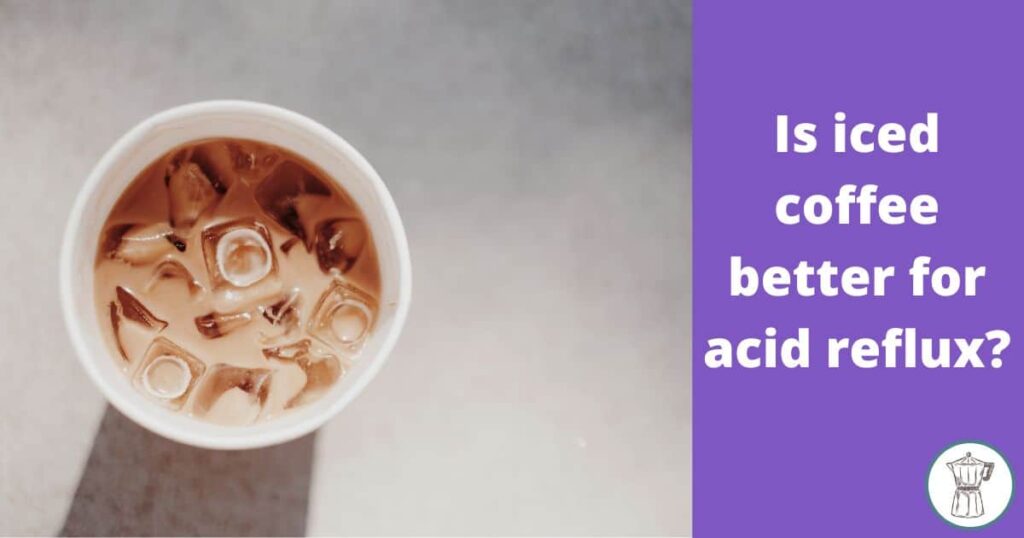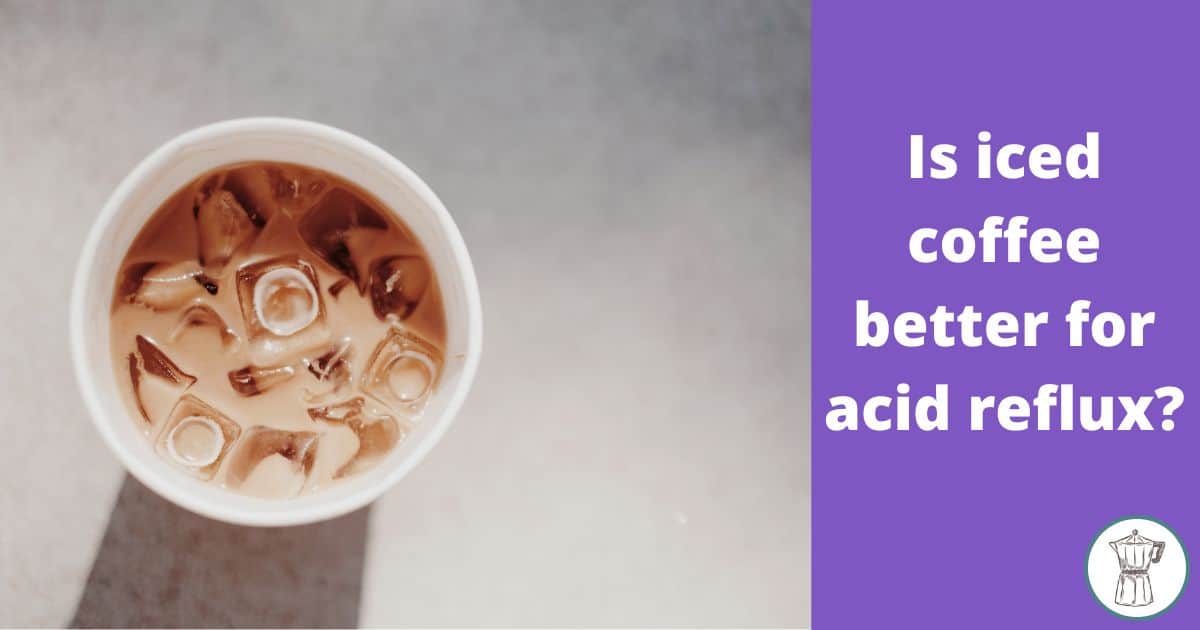
Can Drinking Coffee Cause Acid Reflux? Unpacking the Science and Finding Relief
The morning ritual for many involves a steaming cup of coffee. It’s a pick-me-up, a social lubricant, and for some, an essential part of their daily routine. But for those who suffer from acid reflux, also known as heartburn or gastroesophageal reflux disease (GERD), that seemingly innocuous cup of coffee can be a source of significant discomfort. The question, then, is a crucial one: can drinking coffee cause acid reflux? This article delves into the science, explores the complexities, and offers insights into managing this common and often painful condition.
Acid reflux occurs when stomach acid flows back up into the esophagus, the tube that carries food from your mouth to your stomach. This backwash can irritate the lining of the esophagus, causing a burning sensation in the chest, often described as heartburn. Other symptoms include regurgitation of food or sour liquid, difficulty swallowing, and a persistent cough.
The Complex Relationship Between Coffee and Acid Reflux
The relationship between coffee and acid reflux is not always straightforward. While coffee is a well-known trigger for some, it doesn’t affect everyone the same way. Several factors contribute to this variability, including individual sensitivity, the type of coffee consumed, and the presence of other underlying health conditions.
How Coffee May Trigger Acid Reflux
Several mechanisms may explain why drinking coffee cause acid reflux for some individuals:
- Lowering the Lower Esophageal Sphincter (LES) Pressure: The LES is a muscle that acts as a valve between the esophagus and the stomach. It’s supposed to remain closed to prevent stomach acid from flowing back up. Coffee, and specifically caffeine, can relax the LES, making it more likely for acid to escape.
- Increased Stomach Acid Production: Coffee can stimulate the stomach to produce more acid. This increased acidity can exacerbate reflux symptoms, especially if the LES is already weakened.
- Irritation of the Esophageal Lining: The acidity of coffee itself can irritate the esophageal lining, potentially worsening reflux symptoms. Some studies suggest that even decaffeinated coffee can trigger symptoms in some individuals.
Factors Influencing Individual Sensitivity
Individual responses to coffee vary widely. Several factors can influence whether drinking coffee cause acid reflux for a particular person:
- Caffeine Sensitivity: Individuals with higher caffeine sensitivity may be more susceptible to coffee-induced reflux.
- Type of Coffee: The acidity levels vary between different types of coffee. Dark roasts are often less acidic than light roasts, and cold brew tends to be less acidic than hot coffee.
- Coffee Preparation: The way coffee is prepared can also influence its acidity. Adding milk or cream may buffer the acidity, potentially reducing reflux symptoms.
- Underlying Health Conditions: Individuals with pre-existing conditions like GERD, hiatal hernia, or other digestive issues may be more likely to experience reflux after drinking coffee.
The Science Behind the Claims
While anecdotal evidence abounds, scientific studies on the link between coffee and acid reflux have yielded mixed results. Some studies support the notion that drinking coffee cause acid reflux, while others find no significant correlation. This inconsistency likely stems from the complex interplay of factors mentioned above.
A review of studies published in the journal Gastroenterology found that coffee consumption was associated with an increased risk of reflux symptoms in some individuals. However, the authors also noted that the effect varied significantly depending on the study population and the methodology used. Other research has explored the impact of different coffee varieties and preparation methods on reflux symptoms, but conclusive evidence remains elusive.
The National Institute of Diabetes and Digestive and Kidney Diseases (NIDDK) recognizes coffee as a potential trigger for heartburn in some people, but it emphasizes that individual responses vary. The American College of Gastroenterology (ACG) guidelines acknowledge that dietary factors can trigger reflux symptoms, but they don’t specifically single out coffee as a universal culprit.
Identifying Coffee as a Trigger
For those who suspect that drinking coffee cause acid reflux, it’s important to determine whether coffee is indeed a trigger. This can be achieved through several strategies:
- Keep a Food Diary: Track your coffee consumption and any subsequent symptoms, such as heartburn, regurgitation, or chest pain. Note the type of coffee, the time of day you drank it, and any other foods or beverages consumed.
- Elimination Diet: Temporarily eliminate coffee from your diet for a week or two to see if your symptoms improve. Reintroduce coffee gradually to assess your tolerance.
- Consult a Healthcare Professional: If you experience persistent or severe reflux symptoms, consult a doctor or gastroenterologist. They can perform tests to diagnose the underlying cause of your symptoms and recommend appropriate treatment.
Managing Acid Reflux When Coffee is a Trigger
If you find that drinking coffee cause acid reflux, there are several strategies you can employ to manage your symptoms and still enjoy your morning caffeine fix, if desired:
- Modify Your Coffee Habits: Try switching to a lower-acid coffee, such as a dark roast or cold brew. Experiment with adding milk or cream to buffer the acidity.
- Limit Coffee Intake: Reduce the amount of coffee you drink, or spread your consumption throughout the day rather than drinking a large amount at once.
- Drink Coffee with Food: Eating food while drinking coffee can help to buffer the acidity and reduce the risk of reflux.
- Avoid Drinking Coffee on an Empty Stomach: This can exacerbate reflux symptoms.
- Medications: Over-the-counter antacids or H2 blockers can provide short-term relief from heartburn. Proton pump inhibitors (PPIs) are often prescribed for more severe cases. Always consult with your doctor before taking any medication.
- Lifestyle Modifications: In addition to dietary changes, other lifestyle modifications can help manage acid reflux. These include maintaining a healthy weight, avoiding smoking, elevating the head of your bed, and avoiding lying down for at least three hours after eating.
Alternatives to Coffee
If you find that drinking coffee cause acid reflux and you are unable to manage your symptoms effectively, you might consider alternatives:
- Tea: Herbal teas, such as chamomile or ginger tea, may have soothing effects on the digestive system. Green tea and black tea have lower acidity levels than coffee.
- Decaffeinated Coffee: This can eliminate the potential for caffeine to trigger reflux.
- Coffee Substitutes: Products made from roasted grains or chicory root can mimic the taste of coffee without the acidity.
- Other Beverages: Consider other caffeine sources, such as green tea, yerba mate, or black tea.
Conclusion: Navigating the Coffee-Acid Reflux Connection
The question of whether drinking coffee cause acid reflux doesn’t have a simple yes or no answer. The relationship is complex and varies from person to person. While coffee can be a trigger for some, others may be able to enjoy it without experiencing any symptoms. By understanding the potential mechanisms, identifying individual triggers, and implementing appropriate management strategies, individuals can navigate this connection and find relief from acid reflux. Ultimately, it’s about finding what works best for your body and making informed choices to optimize your digestive health.
If you are experiencing persistent acid reflux symptoms, it is crucial to consult a healthcare professional for proper diagnosis and treatment. Don’t let the fear of drinking coffee cause acid reflux completely dictate your life. With a little knowledge and some mindful adjustments, you can find a balance that allows you to enjoy your favorite beverages while keeping your digestive system happy.
[See also: Foods to Avoid with Acid Reflux] [See also: Natural Remedies for Heartburn] [See also: Understanding GERD and its Treatment]


